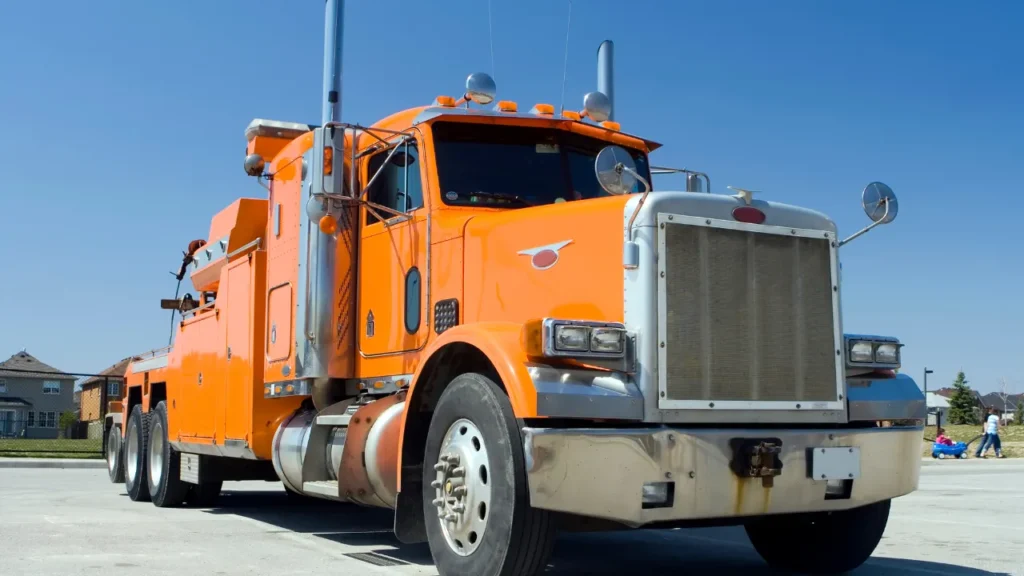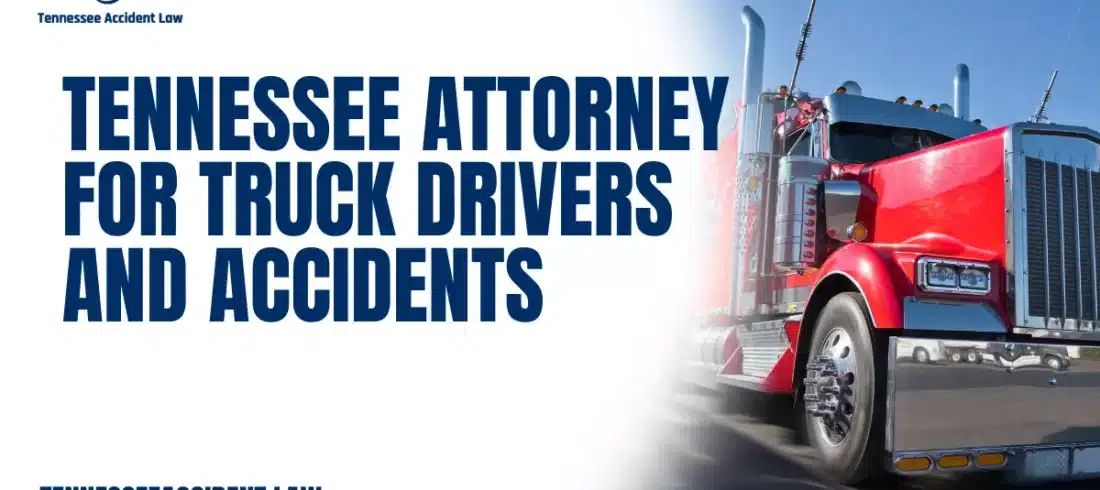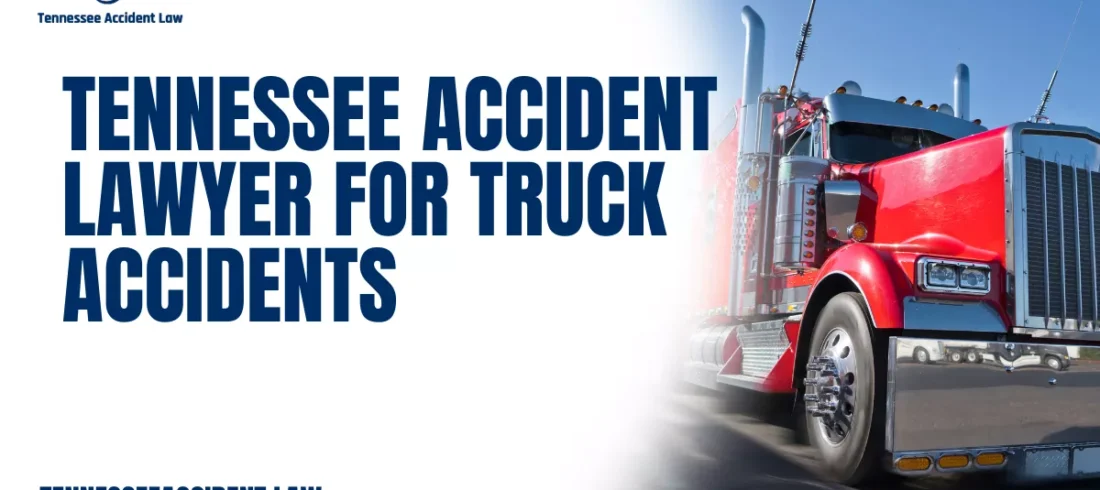The Risks of Blind Spot Accidents with Trucks in Tennessee
Blind spot truck accidents are among the most dangerous and frequent collisions on Tennessee roads. Large commercial trucks, including 18-wheelers, semi-trucks, and delivery vehicles, have significant blind spots that make them prone to serious accidents. When a truck driver fails to see smaller vehicles in these blind zones, catastrophic crashes often occur, leaving victims with severe injuries, property damage, or worse. At Tennessee Accident Law, we understand the devastating impact of blind spot accidents and are here to fight for your legal rights. Call us today at (615) 212-9866.

The Blind Spots of Large Trucks
Commercial trucks have four primary blind spots, commonly referred to as “No-Zones”:
- Front Blind Spot: Trucks have a blind zone of about 20 feet in front of the vehicle.
- Rear Blind Spot: The area directly behind a truck, often extending up to 30 feet, is entirely obscured from the driver’s view.
- Left-Side Blind Spot: Though smaller than the right side, the driver cannot see vehicles immediately adjacent to the truck’s left.
- Right-Side Blind Spot: The largest blind zone, this area can span multiple lanes.
These blind zones significantly increase the risk of blind spot truck accidents, especially when truck drivers change lanes, merge, or make sharp turns.
Common Causes of Blind Spot Truck Accidents
Blind spot accidents typically result from a combination of driver negligence and environmental factors. Some of the most common causes include:
- Driver Failure to Check Mirrors: Truck drivers are required to use multiple mirrors to monitor blind spots. A momentary lapse in vigilance can prove fatal.
- Improper Lane Changes: Changing lanes without properly signaling or checking blind spots often leads to collisions.
- Distracted Driving: Texting, eating, or fatigue may distract drivers, preventing them from monitoring blind zones.
- Speeding and Aggressive Driving: Rapid maneuvers exacerbate the risk of blind spot truck accidents.
- Passenger Vehicles Driving in No-Zones: Many drivers are unaware of truck blind spots and linger in these areas, increasing collision risk.
Why Blind Spot Truck Accidents Are So Dangerous
Blind spot truck accidents are particularly hazardous due to the sheer size and weight of commercial trucks. A fully loaded semi-truck can weigh up to 80,000 pounds, making collisions with smaller vehicles devastating. Victims often suffer:
- Severe Injuries: Traumatic brain injuries, spinal cord injuries, fractures, and internal bleeding.
- Property Damage: Passenger vehicles involved in truck collisions are often totaled due to the force of impact.
- Fatalities: Sadly, many blind spot accidents result in wrongful death, leaving families to deal with unimaginable grief and loss.
The disproportionate size of trucks means that even minor blind spot incidents can result in catastrophic consequences.
Who is Liable in Blind Spot Truck Accidents?
Determining liability in blind spot truck accidents can be complex. Multiple parties may be responsible, including:
- Truck Drivers: Drivers are obligated to check blind spots, use turn signals, and operate their vehicles safely.
- Trucking Companies: Employers may be held liable for negligent hiring, training, or failure to maintain trucks.
- Truck Manufacturers: Defective mirrors, cameras, or sensors may contribute to blind spot accidents.
- Other Drivers: Passenger vehicle drivers lingering in blind zones or failing to drive defensively can also share responsibility.
At Tennessee Accident Law, a Tennessee truck accident lawyer will conduct a thorough investigations to identify all liable parties and ensure victims receive the compensation they deserve.
Steps to Take After a Blind Spot Truck Accident
If you have been involved in a blind spot truck accident, taking immediate action is crucial to protect your health and legal rights. Follow these steps:
- Seek Medical Attention: Even if injuries appear minor, seek immediate medical care to document any trauma.
- Call Law Enforcement: File a police report to ensure official documentation of the accident.
- Gather Evidence: Take photos of the accident scene, vehicle damage, and injuries. Collect witness information.
- Avoid Speaking to Insurance Companies: Insurance adjusters may try to minimize your claim or shift blame. Speak to an attorney first.
- Contact Tennessee Accident Law: Our experienced attorneys will guide you through the legal process and handle all communications with insurers.
How Tennessee Accident Law Can Help
At Tennessee Accident Law, we specialize in representing victims of blind spot truck accidents. Our firm has over 20 years of experience fighting against trucking companies and insurance giants to secure justice for injured clients. We understand the physical, emotional, and financial toll of truck accidents, and we are committed to helping you recover:
- Medical Expenses: Coverage for current and future medical treatments, surgeries, and rehabilitation.
- Lost Wages: Compensation for missed work and reduced earning capacity.
- Pain and Suffering: Damages for emotional distress, trauma, and decreased quality of life.
- Property Damage: Repair or replacement costs for your vehicle.
- Wrongful Death Claims: Support for families who have lost loved ones in tragic accidents.
Our legal team works tirelessly to build strong cases, leveraging accident reconstruction experts, medical professionals, and witness testimonies to hold negligent parties accountable. Call us now at (615) 212-9866.

Preventing Blind Spot Truck Accidents
Both truck drivers and passenger vehicle operators can take steps to reduce the likelihood of blind spot accidents:
-
Truck Driver Precautions:
- Consistently monitor blind spots using mirrors and cameras.
- Signal lane changes well in advance.
- Maintain a safe speed and remain alert at all times.
-
Passenger Vehicle Driver Tips:
- Avoid lingering in truck blind spots, especially on the right side.
- Pass trucks quickly and safely.
- Stay visible by keeping a safe distance in front and behind trucks.
By practicing these safety measures, drivers can help prevent dangerous blind spot truck accidents on Tennessee highways.
Get a Free Case Evaluation Today
If you or a loved one has been injured in a blind spot truck accident, do not wait to take legal action. At Tennessee Accident Law, we offer a free case evaluation to assess your claim and help you understand your legal options. You do not pay any fees unless we win your case.
Our dedicated team is here to fight for your rights, ensuring you receive the compensation you deserve for medical bills, lost income, and emotional suffering. Let us handle the legal complexities while you focus on recovery.
Complete our free case evaluation form today and take the first step toward justice.
Sources:
- Federal Motor Carrier Safety Administration (FMCSA):
The FMCSA provides detailed information on truck safety regulations, blind spots, and “No-Zones” to educate both truck drivers and passenger vehicle operators.
Source Link: FMCSA No-Zone Program - National Highway Traffic Safety Administration (NHTSA):
The NHTSA offers critical data on truck accidents, including statistics related to blind spot crashes, contributing factors, and safety recommendations.
Source Link: NHTSA Large Truck Crash Data - Insurance Institute for Highway Safety (IIHS):
The IIHS provides research-based reports and safety insights regarding truck blind spots, collision outcomes, and preventive measures.
Source Link: IIHS Truck Safety Research


